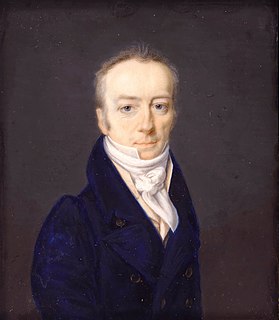A Quote by Hal Borland
Of all the everyday plants of the earth, grass is the least pretentious and the most important to mankind. It clothes the earth is an unmistakable way. Directly or indirectly it provides the bulk of man's food, his meat, his bread, every scrap of his cereal diet. Without grass we would all starve, we and all our animals. And what a dismal place this world would be!
Related Quotes
He made the earth first and peopled it with dumb creatures, and then He created man to be His overseer on the earth and to hold suzerainty over the earth and the animals on it in His name, not to hold for himself and his descendants inviolable title forever, generation after generation, to the oblongs and squares of the earth, but to hold the earth mutual and intact in the communal anonymity of brotherhood, and all the fee He asked was pity and humility and sufferance and endurance and the sweat of has face for bread.
If you study Japanese art you see a man who is undoubtedly wise, philosophic and intelligent, who spends his time how? In studying the distance between the earth and the moon? No. In studying the policy of Bismarck? No. He studies a single blade of grass. But this blade of grass leads him to draw every plant and then the seasons, the wide aspects of the countryside, then animals, then the human figure. So he passes his life, and life is too short to do the whole.
He fished in his pocket for his keys and instead pulled out the last geode, gray and smooth, earth-shaped. He held it, warming in his palm, thinking of all mysteries the world contained: layers of stone, concealed beneath the flesh of earth and grass; these dull rocks, with their glimmering hidden hearts.
Our Heavenly Father hears the prayers of His children across the earth pleading for food to eat, for clothes to cover their bodies, and for the dignity that would come from being able to provide for themselves. Those pleas have reached Him since He placed men and women on the earth. But always the Lord’s way to help those in temporal need requires people who out of love have consecrated themselves and what they have to God and to His work.
It is all a question of sensitiveness. Brute force and overbearing may make a terrific effect. But in the end, that which lives by delicate sensitiveness. If it were a question of brute force, not a single human baby would survive for a fortnight. It is the grass of the field, most frail of all things, that supports all life all the time. But for the green grass, no empire would rise, no man would eat bread: for grain is grass; and Hercules or Napoleon or Henry Ford would alike be denied existence.
We are here on this earth to know God intimately, fully, correctly, and contagiously; to house His holy person in our very bodies, allowing Him to showcase to the world around us His loving nature, His attitude, His thoughts, His emotions, and His actions through the way we live every moment of our lives.
A man follows the path laid out for him. He does his duty to God and his King. He does what he must do, not what pleases him. God's truth, boy, what kind of world would this be if every man did what pleased him alone? Who would plough the fields and reap the harvest, if every man had the right to say, 'I don't want to do that.' In this world there is a place for every man, but every man must know his place.
When a man sought knowledge, it would not be long before it could be seen in his humbleness, his sight, upon his tongue and his hands, in his prayer, in his speech and in his disinterest (zuhd) in worldly allurements. And a man would acquire a portion of knowledge and put it into practice, and it would be better for him than the world and all it contains - if he owned it he would give it in exchange for the hereafter.
He is not the soul of Nature, nor any part of Nature. He inhabits eternity: He dwells in a high and holy place: heaven is His throne, not his vehicle, earth is his footstool, not his vesture. One day he will dismantle both and make a new heaven and earth. He is not to be identified even with the 'divine spark' in man. He is 'God and not man.
Young man, two are the forces most precious to mankind. The first is Demeter, the Goddess. She is the Earth -- or any name you wish to call her -- and she sustains humanity with solid food. Next came Dionysus, the son of the virgin, bringing the counterpart to bread: wine and the blessings of life's flowing juices. His blood, the blood of the grape, lightens the burden of our mortal misery. Though himself a God, it is his blood we pour out to offer thanks to the Gods. And through him, we are blessed.
What a wee little part of a person's life are his acts and his words! His real life is led in his head, and is known to none but himself. All day long, the mill of his brain is grinding, and his thoughts, not those of other things, are his history. These are his life, and they are not written. Everyday would make a whole book of 80,000 words -- 365 books a year. Biographies are but the clothes and buttons of the man -- the biography of the man himself cannot be written.



































